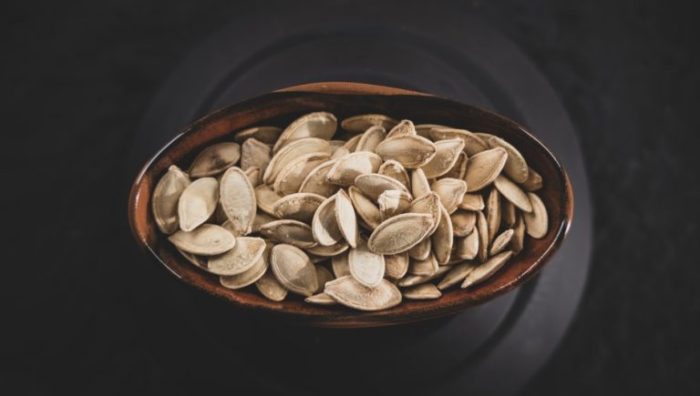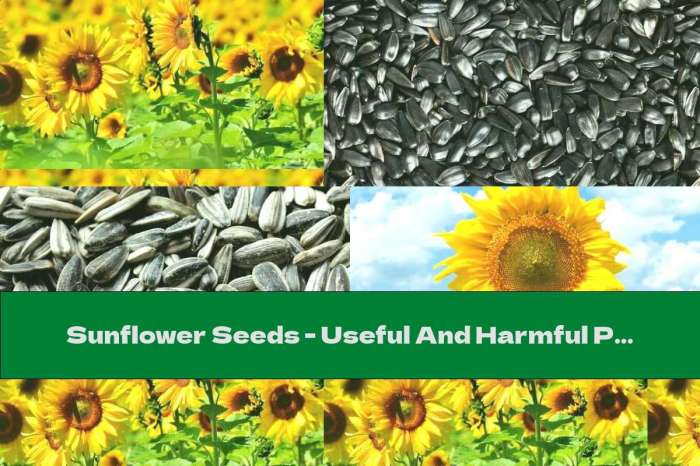Food guides usually classify sunflower and other seeds in the nut and seed group. This classification is based on their nutritional profile and culinary applications. Sunflower seeds are a good source of healthy fats, protein, and fiber, making them a nutritious addition to a balanced diet.
In this article, we will explore the classification of sunflower and other seeds in food guides, their nutritional value, and their culinary uses. We will also provide tips for storing sunflower seeds to maintain their freshness and extend their shelf life.
Seed Classification in Food Guides

Food guides typically classify sunflower seeds and other seeds in the “healthy fats” category. This classification is based on the high content of unsaturated fats, particularly linoleic acid, in these seeds. Other seeds commonly grouped in this category include chia seeds, flaxseeds, pumpkin seeds, and sesame seeds.
The rationale behind this classification lies in the health benefits associated with consuming unsaturated fats. These fats help lower cholesterol levels, reduce the risk of heart disease, and promote brain health.
Nutritional Profile of Sunflower Seeds: Food Guides Usually Classify Sunflower And Other Seeds In The

Sunflower seeds are a nutrient-rich food source, offering a wide range of essential vitamins, minerals, and antioxidants.
| Nutrient | Sunflower Seeds (100g) | Almonds (100g) | Walnuts (100g) |
|---|---|---|---|
| Calories | 584 | 579 | 654 |
| Fat | 49.6g | 49.9g | 65.2g |
| Protein | 21.2g | 21.1g | 15.2g |
| Carbohydrates | 20.7g | 21.6g | 13.7g |
| Fiber | 11.1g | 12.5g | 7.0g |
| Vitamin E | 35.1mg | 25.6mg | 10.4mg |
| Selenium | 75.9mcg | 7.2mcg | 19.1mcg |
Sunflower seeds are particularly rich in vitamin E, an antioxidant that protects cells from damage, and selenium, an essential mineral for thyroid function.
Culinary Applications of Sunflower Seeds

Sunflower seeds are a versatile ingredient that can be incorporated into various culinary creations. Whole sunflower seeds can be roasted, salted, or spiced to make a nutritious snack. Ground sunflower seeds can be used as a thickener for sauces, soups, and stews.
They can also be added to baked goods, such as muffins, cookies, and bread, for a nutty flavor and added texture.
Sunflower seed butter, made from ground sunflower seeds, is a creamy and flavorful alternative to peanut butter. It can be used as a spread, dip, or ingredient in smoothies and sauces.
Storage and Shelf Life of Sunflower Seeds

Proper storage is crucial to maintain the freshness and quality of sunflower seeds. They should be stored in an airtight container in a cool, dry place. Refrigeration or freezing can extend their shelf life further.
Whole sunflower seeds have a shelf life of up to 6 months when stored at room temperature. Roasted sunflower seeds have a shorter shelf life of about 3 months. Ground sunflower seeds have the shortest shelf life of about 1 month due to their increased surface area, which makes them more susceptible to oxidation.
To extend the shelf life of sunflower seeds, they can be vacuum-sealed or stored in a nitrogen-flushed environment.
Popular Questions
What is the nutritional value of sunflower seeds?
Sunflower seeds are a good source of healthy fats, protein, and fiber. They also contain vitamins and minerals such as vitamin E, magnesium, and selenium.
How can I incorporate sunflower seeds into my diet?
Sunflower seeds can be eaten as a snack, added to salads, soups, and smoothies, or used as a topping for yogurt or oatmeal.
How should I store sunflower seeds to maintain their freshness?
Sunflower seeds should be stored in a cool, dry place in an airtight container. They can be stored for up to six months.